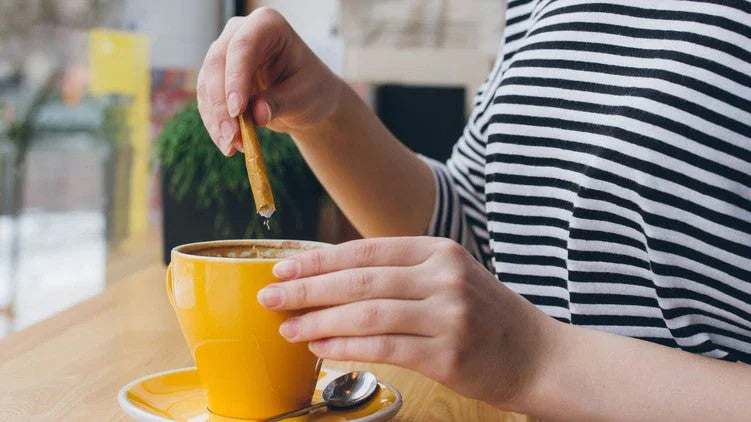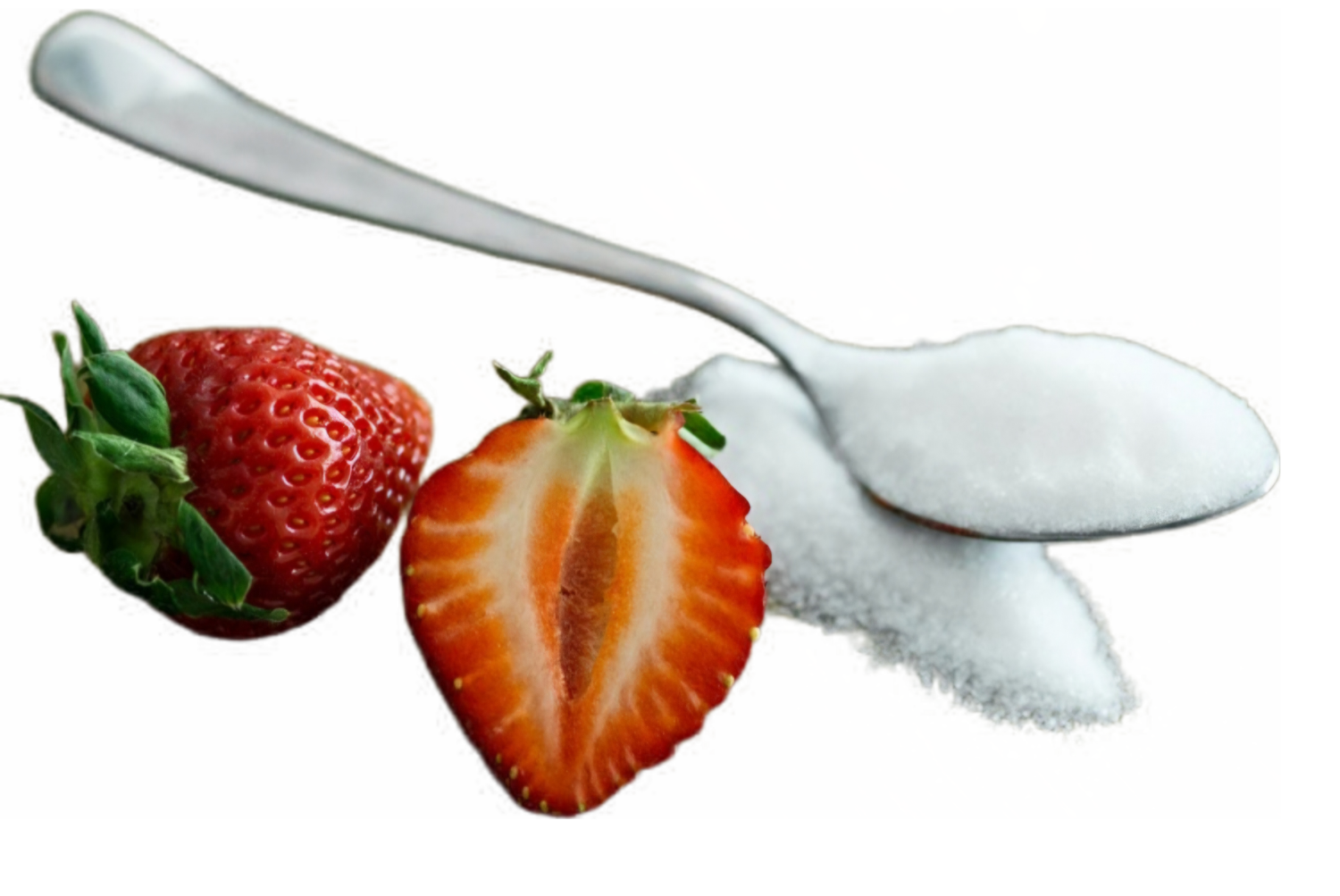
Sweeteners: which is the best sugar substitute?
Allulose StoreReading
Source: HealthGuide.hu
Sweeteners are substances that add a sweet taste to foods and drinks. Some sweeteners, such as table sugar, can be harmful to people with diabetes. In contrast, there are low-calorie sweeteners that allow people with diabetes to enjoy sweets without negatively affecting their blood sugar levels.
There are many alternative sweeteners available, each with different advantages and disadvantages.
The American Diabetes Association (ADA) However, while zero-calorie sweeteners may not cause an immediate spike in blood sugar, there is no evidence that they help lower blood sugar levels in the long term. It is best to use low-calorie sweeteners in moderation in a variety of ways. carbohydrate-conscious as part of the diet.
Stevia
Stevia is a natural sweetener derived from the Stevia rebaudiana plant. To make it, manufacturers extract compounds called steviol glycosides from the leaves of the plant. This highly processed and purified product is about 300 times sweeter than table sugar, so you only need to use a small amount.
Stevia has several advantages and disadvantages that diabetics should consider. Its advantages include that it is calorie-free and does not raise blood sugar levels. Its disadvantages are that it is often more expensive than other sugar substitutes, and that it has an unpleasant, bitter aftertaste that many people find unpleasant. For this reason, some manufacturers add other sugars and ingredients to balance the taste, which in turn can reduce the suitability of the product for diabetics. In addition, some people report nausea, bloating, and stomach upset after consuming it.
The Food and Drug Administration (FDA) classifies sweeteners made from high-purity steviol glycosides as "generally recognized as safe" (GRAS). However, the FDA does not consider Stevia leaves or crude Stevia extracts to be safe, and in the United States, for example, it is illegal to sell or import these products.
According to the FDA, the acceptable daily intake of stevia is 4 milligrams per kilogram (mg/kg) for humans. in relation to body weight So a person weighing 60 kg (132 pounds) can safely consume 9 packets of the tablet version of stevia sweetener per day.
Tagatoz
Tagatose is a form of fructose that is about 90% sweeter than sucrose. Although it is found in small amounts in some fruits, such as apples, oranges, and pineapple, manufacturers usually extract it from milk. It is used in the food industry as a low-calorie sweetener, texturizer, or stabilizer.
The FDA has given tagatose a "generally recognized as safe" (GRAS) designation, and scientists are interested in its potential for treating type 2 diabetes, largely because of its low glycemic index.
Tagatose may be particularly beneficial for those following a low GI diet, making it safer for diabetics to consume. However, it should be noted that this sugar substitute is generally more expensive than other low-calorie sweeteners and can sometimes be harder to find on store shelves.
Sucralose
Sucralose is an artificial sweetener that is approximately It is 600 times sweeter than table sugar and contains very few calories. It is one of the most popular and widely available artificial sweeteners.
Manufacturers add sucralose to sweeten a wide range of products, from chewing gum to baked goods. It is heat-stable, making it a popular choice for sugar-free baking and sweetening hot beverages. Unlike other artificial sweeteners, sucralose maintains its flavor at high temperatures.
The FDA has approved sucralose as a general-purpose sweetener and has set an ADI of 5 mg/kg body weight. This means that, for example, a 60 kg person can safely consume up to 23 sucralose tablets in a day.
However, some studies have raised health concerns about it. A study for example, found that male mice consuming sucralose were more likely to develop malignant tumors.
However, it should be noted that although animal studies do not necessarily indicate whether a substance poses a significant risk to humans, they nevertheless have significant indicative value, so further research is needed on the effects of sucralose on humans to determine its safety.
Acesulfame potassium
Acesulfame potassium, also known as acesulfame K or Ace-K, is an artificial sweetener that contains about It is 200 times sweeter than table sugar. Manufacturers often combine it with other sweeteners to reduce its bitter aftertaste.
The FDA has approved acesulfame potassium as a low-calorie sweetener. In total, more than 90 studies support its safety. The FDA sets the ADI for acesulfame potassium at 15 mg/kg body weight. This is equivalent to a person weighing 60 kg (132 pounds) consuming 23 packets of tabletop sweetener per day.
Some studies in mice suggest a possible link between acesulfame potassium and weight gain, but further research in humans is needed to explore this link.
Saccharin
Saccharin is widely available, contains zero calories, and It is 200-700 times sweeter than table sugar.
Safety concerns were raised about it in the 1970s after research in laboratory rats found a link between saccharin and bladder cancer between.
However, more than 30 human studies now support the safety of saccharin, and the National Institutes of Health no longer considers this sweetener to cause cancer.
The FDA has set the ADI for saccharin at 15 mg/kg of body weight, which means that a 60 kg person can consume up to 45 packets of the tablet version of the sweetener per day.
Neotame
Neotame is a low-calorie artificial sweetener that contains approximately It is 7000-13000 times sweeter than table sugar. It withstands high temperatures well, so it is also suitable for baking.
The FDA approved neotame in 2002 as a general-purpose sweetener and flavor enhancer for all foods—except meats and poultry. The FDA says more than 113 animal and human studies support its use. neotame The FDA has set the ADI for neotame at 0.3 mg/kg body weight. This is equivalent to a 60 kg person consuming 23 packets of neotame tabletop sweetener per day.
Monk fruit, monk pear
Monk fruit, also known as Lo Han Guo or Swingle fruit, is a small, round fruit native to Southeast Asia, where people have used it for centuries in traditional Chinese medicine as a digestive aid.
Some manufacturers make a calorie-free, carbohydrate-free sweetener from dried monk pears. This is about It is 250 times sweeter than table sugar and does not affect a person's blood sugar levels.
This sweetener can be added to many foods and beverages. It is stable at high temperatures, but is not suitable as a sugar alternative in baked goods that require sugar for texture and structure.
The FDA approved in 2010 monk fruit extract as a food additive. It has recognized monk fruit as safe for everyone, including pregnant women and children, and has approved its use in foods and beverages. However, it has not established an ADI for monk fruit.
Allulose
Allulose is a low-calorie sugar that occurs naturally in some fruits and vegetables, such as figs, raisins, and jackfruit. Approximately It is 70% as sweet as table sugar, but contains 90% fewer calories. It does not raise blood sugar levels and does not feed the dental bacteria that cause tooth decay.
Unlike other artificial sweeteners, allulose is suitable for baking and acts like sugar.
The FDA has classified allulose as GRAS but has not set an ADI.
What about agave nectar?
Agave nectar or syrup is derived from agave plants. Although brands often market it as a healthy alternative to sugar, it is not suitable for diabetics due to its sugar content.
The ADA lists agave nectar, along with corn syrup, honey, and table sugar, as an example of "added sugar" that diabetics should watch for on food labels. Consuming high amounts of added sugar can contribute to prediabetes, type 2 diabetes, and obesity.
Things to consider when choosing a sweetener
- Intended use: many sugar substitutes cannot withstand high temperatures, so they are not suitable for baking.
- Necessity : Sometimes it is possible to sweeten a food with something other than sweeteners (e.g. fruit).
- Cost and availability: Some sugar substitutes are expensive, while others are priced closer to table sugar. Additionally, some sugar substitutes are more widely available than others.
- Taste: some sugar substitutes, such as stevia, have a bitter aftertaste that many people may find unpleasant.
- Natural vs. artificial: Some people prefer to use natural sweeteners, like stevia, over artificial sugar substitutes. However, as the example of agave nectar shows, “natural” doesn’t always mean better.
In summary
Appropriate sweeteners are very important in the diet of people with diabetes.
There are low-calorie sweeteners that can help you enjoy sweet foods.
Allulose is a natural sweetener that, with minimal calories, does not raise blood sugar levels.

